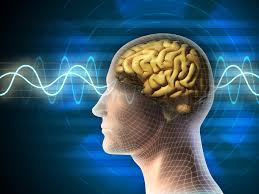Breaking the Stigma: Mental Health in America
Mental Health Epidemic in the United States
Guest Blog Post by: Suzanne Nixon, EdD, LPC, LMFT, Licensed Professional Counselor & Marriage & Family Therapist
Join us at our upcoming Health and Wellness Event, “Mental Illness: Breaking the Stigma” on September 18, 2018
For more information about the Loudoun Chamber’s Health and Wellness Initiative, click here. #LiveWellBeWell
No doubt about it – when you read the present-day statistics on mental health disorders in the United States, it is shocking. According to the National Institutes of Mental Health, 1 in 5 adults and 1 in 5 children/teens, live with a mental health disorder. That’s 20% of our overall population who are struggling with a condition effecting their sound thinking, feeling and behaving. To put this into perspective, that’s 1 out of 5 of your family members, or 1 out of 5 of your colleagues or 1 out 5 of your neighbors.

There is an acute mental health crisis happening in our country, however many of us are not aware of it, or, we are just not talking about it. Platforms for conversation and education in our communities at large as well as at the state and national level are few and far in between. Regrettably, the topic of mental health is too often ignited by a catastrophic or gruesome event, like a mass shooting or child mistreatment/abduction situation. Although a mental health issue is at the core of these events, these events are extreme occurrences and are on the severe end of the overall mental health continuum. Often media coverage sensationalizes these events, thus adding to the distorted perception of mental illness and people experiencing a mental health condition.
Case in point, most people don’t realize mental health is viewed on a continuum. On one end is optimal psychological well-being, on the other end is severe psychological illness. In between are gradations of mental health and behavioral functioning, consisting of characteristics, traits, symptoms and behaviors. For example, say you are experiencing a situational stressor, like an unexpected job loss. You may feel moderately anxious or slightly depressed, experience a change in sleeping or eating patterns, or get more easily agitated. If these symptoms occur more days of the week than not and persist for several months, a mental professional would typically diagnosis you an “adjustment disorder”. This is considered a “low” level mental health disorder on the mental health continuum, very different from a person who is experiencing hallucinations, feeling paranoid, unable to grasp reality and is diagnosed with psychosis, which is on the “high” level on the continuum.
If both individuals seek a professional mental health consult with a behavioral health professional, each would receive a mental health diagnosis and a recommended individualized treatment protocol for improving their mental health and behavioral functioning. Evidenced based research shows that treatment significantly, and often successfully, improves a person’s mental health condition, yet only 25-30% of people seek treatment.
A stigma according to The Webster’s New World Dictionary, is “a perceived negative attribute that causes someone to devalue or think less of the whole person.”The stigma of mental health arises when people don’t understand, make incorrect assumptions or are fed the wrong information about mental health and mental illness. Ignorance breeds confusion, fear and judgement. People experiencing or living with a mental health condition, whether it is a mild or serious condition, or those who appear to be “different”, may be treated unfairly, judged for their differences or “labeled”. They may experience ridicule, be bullied or shunned, which as you would expect, contributes to more emotional suffering.
With one out of five people in the United States living with a mental health disorder, it is time to come together as a community, participate in educational forums where accurate information can be shared and engage in meaningful conversations. Communities learning together with the intent to understand, accept and support mental health awareness, give promise to finding pathways for support and treatment.
